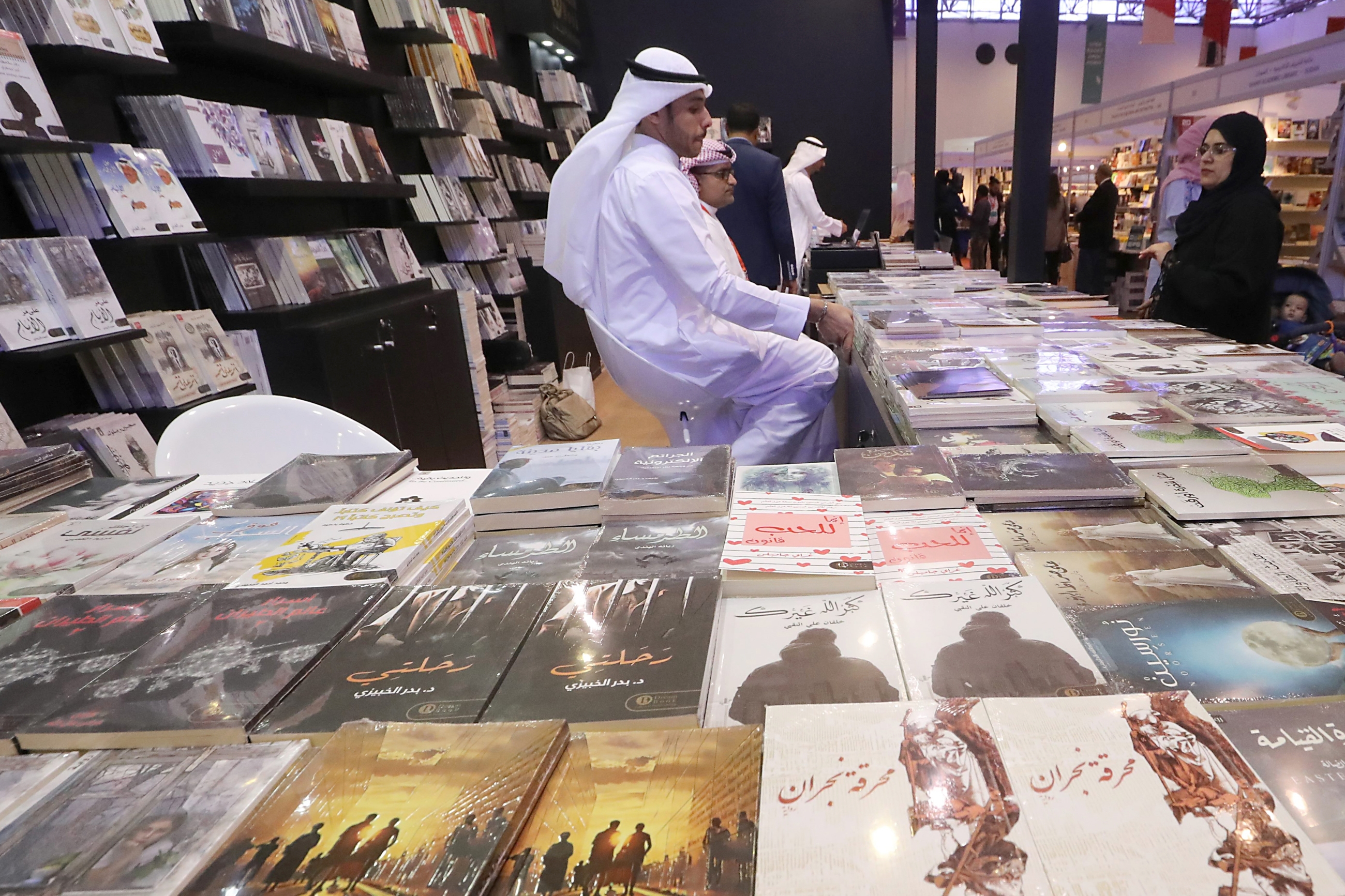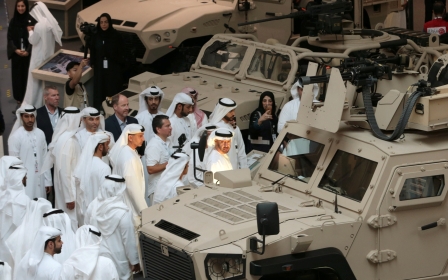Campaigners urge authors at UAE book festival to raise human rights issues

Campaigners have called on authors attending a literature festival in Dubai to speak out about human rights violations in the United Arab Emirates amid mounting criticism of the Gulf kingdom’s record on freedom of expression.
The list of attendees at the Emirates Airline Festival of Literature, which touts itself as “the Arab World’s largest celebration of the written and spoken word”, had been diminishing for months as leading figures pulled out over the Gulf state’s treatment of British academic Matthew Hedges and Emirati activist Ahmed Mansoor.
But with an impressive guest list, including Scottish novelist Ian Rankin still due to make an appearance at this week’s festival, campaigners have now called on attendees to speak out.
"In essence, a literature festival is a celebration of freedom of speech and expression," a spokesperson for the International Campaign for Freedom in the UAE said in a statement.
"But from the detention of Matthew Hedges to the continued imprisonment of Ahmed Mansoor, it is clear that free speech is not something that the festival’s sponsors permit, let alone celebrate."
The UK-based group, which encourages political activism and democratic reform, urged British authors attending the festival to highlight the issue of free speech in the UAE.
"Failure to do so risks whitewashing a myriad of systematic abuses that take place on an almost daily basis in the Emirates," the statement said.
'Soft power'
The festival has over the years become a fixture on the global literary circuit, a meeting of minds between East and West that has included the likes of acclaimed Indian historian Shashi Tharoor and Kuwaiti novelist Saud Alsanousi.
This year, Jane Hawking, whose book about her turbulent marriage with physicist Stephen Hawking was turned into the award-winning film, The Theory of Everything, will rub shoulders with Emirati astronauts Hazza al-Mansouri and Sultan al-Nayadi.
With Costa Coffee, Penguin and Oxford University Press among its partners, the festival is an important part of the Emirates' soft power approach, as the Gulf monarchy seeks to present an image of openness and modernity to the rest of the world, critics say.
The UAE's projected image of tolerance was shaken in the UK last year when Emirati authorities sentenced Hedges to life imprisonment under dubious espionage charges, subjecting him to five months of solitary confinement.
"I was not told why I was being held and I was denied a lawyer. For the next six months, I was interrogated and held in solitary confinement and subject to inhuman, humiliating treatment," the British academic, who was subsequently released with a pardon, said at an event in Washington, DC, earlier this year.
Frank Gardner, the BBC’s security correspondent and British novelist Sabine Durrant pulled out of the festival, as did best-selling British writer Anthony Beevor who urged others to join the boycott.
"I do believe that authors should not go. Not out of anything against the festival, but that they shouldn’t even consider traveling to the UAE in these circumstances," Beevor told the Times.
"All its claims of being modern and open have been completely contradicted by this particular action."
Controversies
In January, former Irish President Mary Robinson also cancelled her scheduled appearance at the book event after the release of a letter signed by academics and lawmakers, calling for freeing Mansoor.
In 2018, the pro-democracy activist was sentenced to 10 years over social media posts.
'It is clear that free speech is not something that the festival’s sponsors permit, let alone celebrate'
-International Campaign for Freedom in the UAE
Human Rights Watch has called Mansoor’s detention an "act of brutal state repression that violates Mansoor’s rights under international human rights law".
Organisers of the festival have stressed the utility of the event in promoting reading and dialogue across cultures.
"We encourage authors to visit the Festival, and be part of our education programme, to make up their own minds about the work we do and experience first hand how instrumental they are in changing lives for the better," a spokesperson of the festival told Bookseller magazine in January.
"An appreciation of literature across cultures is something to be encouraged."
Over the years, the festival has seen its fair share of controversies. In 2009, Canadian novelist Margaret Atwood boycotted the event after organisers blacklisted a romantic novel by British author Geraldine Bedell that takes place in a fictional Gulf kingdom.
In 2015, British academic AC Grayling and children’s author Chris Haughton took time off from the festival to visit Ahmed Mansoor whom authorities had banned from leaving the country. Grayling also raised the issue of the UAE’s abuse of freedom of speech in his public lectures.
Middle East Eye propose une couverture et une analyse indépendantes et incomparables du Moyen-Orient, de l’Afrique du Nord et d’autres régions du monde. Pour en savoir plus sur la reprise de ce contenu et les frais qui s’appliquent, veuillez remplir ce formulaire [en anglais]. Pour en savoir plus sur MEE, cliquez ici [en anglais].




